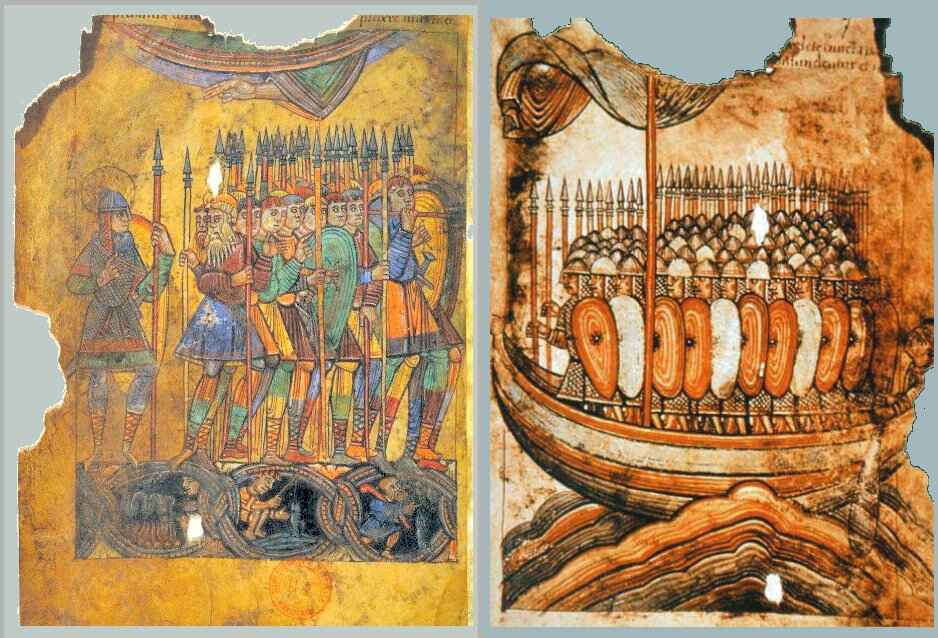Örviri – From Old Norse To Today!
Örviri, a mysterious word with a lot of meaning, has caught the attention of researchers, artists, and tourists. It shows where it comes from and why it’s important.
Örvir is a term from Old Norse, which means quick. It’s often used to describe movements or actions that are rapid or agile. In modern contexts, it can still be found in Icelandic, where it carries similar meanings.
Come along as we uncover what Örviri means, tracing its path from old Norse times to today’s world. We’ll see how it’s still important now, even after all these years.
Understanding Örviri – An Insight Into Old Norse!
In Old Norse, “Örviri” means being very fast or quick. Imagine someone who moves like lightning, that’s örviri. This word is important because it describes how people in ancient Norse societies thought about speed.
In their world, being fast was often linked to being powerful or skilled. Whether it was in battles, hunting, or just daily life, it was highly valued.
Read Also: Soz71 Azad Co – Making A Difference In The Community!
The Importance Of Örviri In Norse Culture – Know It Here!
Örviri wasn’t just about physical speed; it was also about mental quickness. In Norse culture, being able to think and act fast was crucial for survival. People admired those who could react swiftly to changes or challenges.
It was also connected to the gods. Norse myths often describe gods like Odin or Thor as örviri, showing how speed was seen as a divine quality. Overall, it was a big deal in Norse culture, representing both physical and mental agility.
Origins Of Örviri – Exploring The Roots!
The word “Örviri” has deep roots in the Old Norse language. Its origins go back to ancient times when Norse people used it to describe fast movements. It is made up of two parts: “ör,” meaning fast, and “viri,” meaning man.
So, put together, it means someone quick. This term has been passed down through generations, shaping how Norse people talked about speed and agility.
Usage in Old Norse Literature – Swiftness in Action!
In stories and poems from Old Norse literature, örviri is often used to describe heroes and warriors who move with incredible speed. Whether it’s in battles, hunting, or even just travelling, it characters are always quick on their feet.

They dart and dash, showing off their agility and skill. These tales paint a vivid picture of what it means to be örviri, showcasing its importance in Norse society.
Örviri in Norse Mythology – Divine Speed and Agility!
In Norse mythology, the gods themselves are often described as örviri. Figures like Odin, Thor, and even the trickster Loki are celebrated for their incredible speed and agility. In Norse stories, fast things are often linked to gods.
Odin is known for being wise and quick, while Thor is famous for his fast hammer swings. Even Loki, the trickster, is speedy in his clever tricks. This connection between speed and gods in Norse tales tells us that being fast was important. However, both for humans and for gods. It was a big deal in their stories and in their way of life.
Read Also: Vofey Shop – Let’s Learn What’s It?
Örviri In Modern Icelandic – Need To Know!
Örviri in Contemporary Language:
Even though it comes from Old Norse, the word “örviri” still exists in modern Icelandic. But it’s not as commonly used as it was in ancient times. Instead, it’s evolved and adapted to fit into today’s language.
People might not say “örviri” every day, but the idea of being fast or quick is still important. In modern Icelandic, other words might be used to express similar meanings. But the essence of it lives on, showing how language changes over time.
Cultural and Linguistic Influences:
The idea of being fast, called “örviri,” isn’t just for old times. It still affects how we see things today. Even if we don’t say the word “örviri,” we still like people who are quick and agile. In Iceland, people still admire those who think and act fast.
The influence of it can also be seen in other languages that borrowed from Old Norse. So, even though things are different now, it still shapes how we think and talk about being fast and agile.
Örviri In Daily Life – Practical Applications In Ancient Norse Communities!
1. Quick Actions in Everyday Tasks:
In ancient Norse communities, being quick helped with everyday jobs like farming and crafting. If you were fast, you could finish tasks more easily.

2. Survival Skills in Hunting and Gathering:
Being fast was important for hunters to catch animals and for gatherers to collect food quickly. In dangerous situations, speed meant better chances of staying safe.
3. Swift Responses in Times of Danger:
In a world full of dangers like wild animals or enemies, being fast was crucial for survival. So, quick reactions could save lives in dangerous situations.
4. Competitive Edge in Sports and Games:
Norse people enjoyed games and sports where being fast gave you an advantage. Whether it was wrestling or racing, speed was important to win.
5. Social Influence and Status:
People who were fast were respected and admired in their communities. Being quick showed strength and skill, making others look up to them.
Read Also: Thestaurant – Updates In 2024!
Örviri’s Modern Culture – Need To Know!
Even though Örviri came from a long time ago, its influence is still strong today. It’s not just in entertainment and art; people are also fascinated by Norse history and myths. This renewed interest keeps Örviri relevant, reminding us of the exciting stories and values from the past that continue to resonate with us.
So, its enduring presence serves as a bridge between ancient traditions and modern culture, enriching our understanding of both.
Frequently Asked Questions:
Did Norse people have special events for Örviri?
There weren’t specific events for it, but its importance likely influenced Norse ceremonies, showing how speed mattered.
How did Örviri help Norse sailors explore?
Its skills were handy for Norse sailors to navigate rough seas, handle sudden weather changes, and explore new lands quickly.
Is Örviri still used in modern language?
While not as common as in ancient times, it still exists in modern Icelandic, although other words may be used to convey similar meanings.
In A Nutshell:
Örviri, a word from Old Norse has left a lasting impact on both ancient Norse cultures. Its significance in daily life, literature, mythology, and language showcases its enduring relevance and influence across generations.
Read More:






